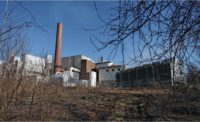The Common Ground Alliance, a group formed in 2000 to advance U.S. Dept. of Transportation efforts to protect underground utilities, launched a “Call Before You Dig” Website to promote the use of a national 811 telephone number for getting buried utilities flagged before shovels turn dirt.
Washington, D.C.-based CGA says its goal is to reduce the estimated 700,000 annual underground line strikes and save lives. It built the site, call811.com, using part of a $1-million grant to develop a public awareness campaign, funded through the federal Pipeline Inspection Protection, Enforcement and Safety Act of November 2006, says Eben Wyman, vice president of government relations at National Utility Contractors Association, Arlington, Va. The Website launched Jan. 24, and 811 service will begin in May.
Wyman serves on CGA’s 811 committee. The 811 number was first designated in the Pipeline Safety Improvement Act of 2002.
Many states have one-call centers, but they are not as effective as they should be, officials say. “About 280,000, or 40%, of these damages didn’t have calls made to the state’s one-call center,” says CGA President Robert Kipp. “We realized people couldn’t find the number, didn’t know about it, thought it cost money, or didn’t want to wait the 48- to 72-hour wait period. We want the Website, public outreach meetings and advertising campaign to get people to call.”
Site resources include a national map with phone numbers of state one-call centers and their Websites. When the 811 number becomes active, information from callers will be directed to local centers, which will notify local utilities. Those utilities then will map and define lines and routes for free.
“The call center looks into the computer system, maps the site to see who has facilities such as sewer or gas, the information pops up on screen and notifications are sent to these companies,” says Kipp.


Post a comment to this article
Report Abusive Comment